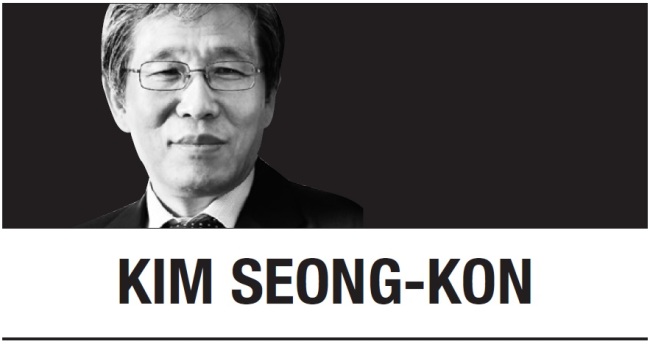
If you go to a foreign country without knowing about the country’s language and culture, you might feel hopeless and at a loss. Suddenly, you will find yourself in an unfamiliar environment, if not hostile, where you instantly become a hearing-impaired and verbally challenged person. Unable to communicate with others, you will be embarrassed and frustrated because you will not be able to understand others or make others understand you.
If you are a politician or a diplomat, who is accompanied by an interpreter, the situation may be better. Nevertheless, you are still likely to be lost in translation. Therefore, it would be much better to have the firsthand knowledge of the language and the culture of the country you are visiting or where you will reside. If you need to depend on your interpreter when you talk to foreign politicians or diplomats, you will end up having tremendous disadvantages eventually.
Many Koreans who felt that they were discriminated against during their sojourns in the United States are likely to include those who cannot speak fluent English. If you do not speak English well, Americans may not feel comfortable and thus want to stay away from you. Then you might feel wrongfully that you are a victim of racial prejudice whereas, in fact, it may simply be a matter of language barrier.
Two weeks ago, I arrived in Spain and had to do grocery shopping at Carrefour right away. After buying some necessities and immediacies, I went to the checkout lane and stood there, waiting for my turn. Finally, there was nobody in front of me. I saw a customer was about to leave a cashier’s desk and approached there. Suddenly, the cashier waved me not to come, saying something in Spanish that I did not quite understand fully. Embarrassed, I backed off.
A few minutes later when the customer was gone, the casher beckoned me to come. I handed my Visa card to her. She swiped my credit card and then looked on the computer screen. Then she asked for my ID or passport. I was unpleasant because I had noticed other Spanish customers did not present their IDs. It was a painful experience to me because I knew few Spanish people were blunt or unfriendly. When I was about to leave in a bad mood, the cashier politely told me with a friendly smile, “Gracias.” I was a bit surprised at her unexpected politeness, for I thought she was unfriendly and rude.
Later, hearing the incident, my Spanish friend explained the situation to me. He told me that at the checkout lane you should follow the announcement, for example, “Cashier Number 14.” Then, you proceed to the designated cashier. Since I did not expect the announcement, I thought it was a general announcement of the store, promoting sales. Besides, it was barely audible anyway. Thus it never occurred to me that I needed to follow the instruction. He also told me that in case of a foreign credit card, the computer would request the cashier to check the customer’s ID for security purposes. Therefore, it turned out to be purely a misunderstanding. Actually, the cashier was a nice person who only tried to explain the system to me. Since she could not speak English at all, perhaps she was equally as embarrassed as I was. My friend’s clarification was like the rain in Spain that is most welcomed.
In Spain, I feel I am home. A Korean would find it so comfortable to stay in Spain because of the famous Spanish sun, nice and friendly, even affectionate people, and delicious gourmet food. Perhaps that was why I had an illusion that I was standing in the checkout lane at Costco or E-mart where you could just go to any available cashier.
When I was in college, it was fashionable to study French or German as a second foreign language. At that time, it never occurred to us that we should study Spanish because Spain seemed so remote and did not have anything to do with Korea. Today, however, Korea and Spain are good friends that are so important to each other. Moreover, the Spanish-speaking population is huge. Now, I belatedly realized that I should have studied Spanish in college when I was young.
Although my Spanish will improve gradually as time goes by, it is staggering as of yet. I can roughly conjecture the meaning of texts written in Spanish. But listening and speaking is still difficult for me to get used to. In Spain, I lecture in English, and yet I have decided to learn Spanish as much as possible in order to truly understand my Spanish students and colleagues at the University of Malaga.
W.H. Auden once said, “Many misunderstandings arise, not over concrete points, but over a failure to recognize certain presuppositions or attitudes which we all make, according to our upbringing, in such a way that we cannot imagine anybody taking any other one.” Living in a foreign country, I cannot agree with him more.
Kim Seong-kon
Kim Seong-kon is a professor emeritus of English at Seoul National University and a visiting professor at the University of Malaga in Spain. He can be reached at sukim@snu.ac.kr -- Ed.








